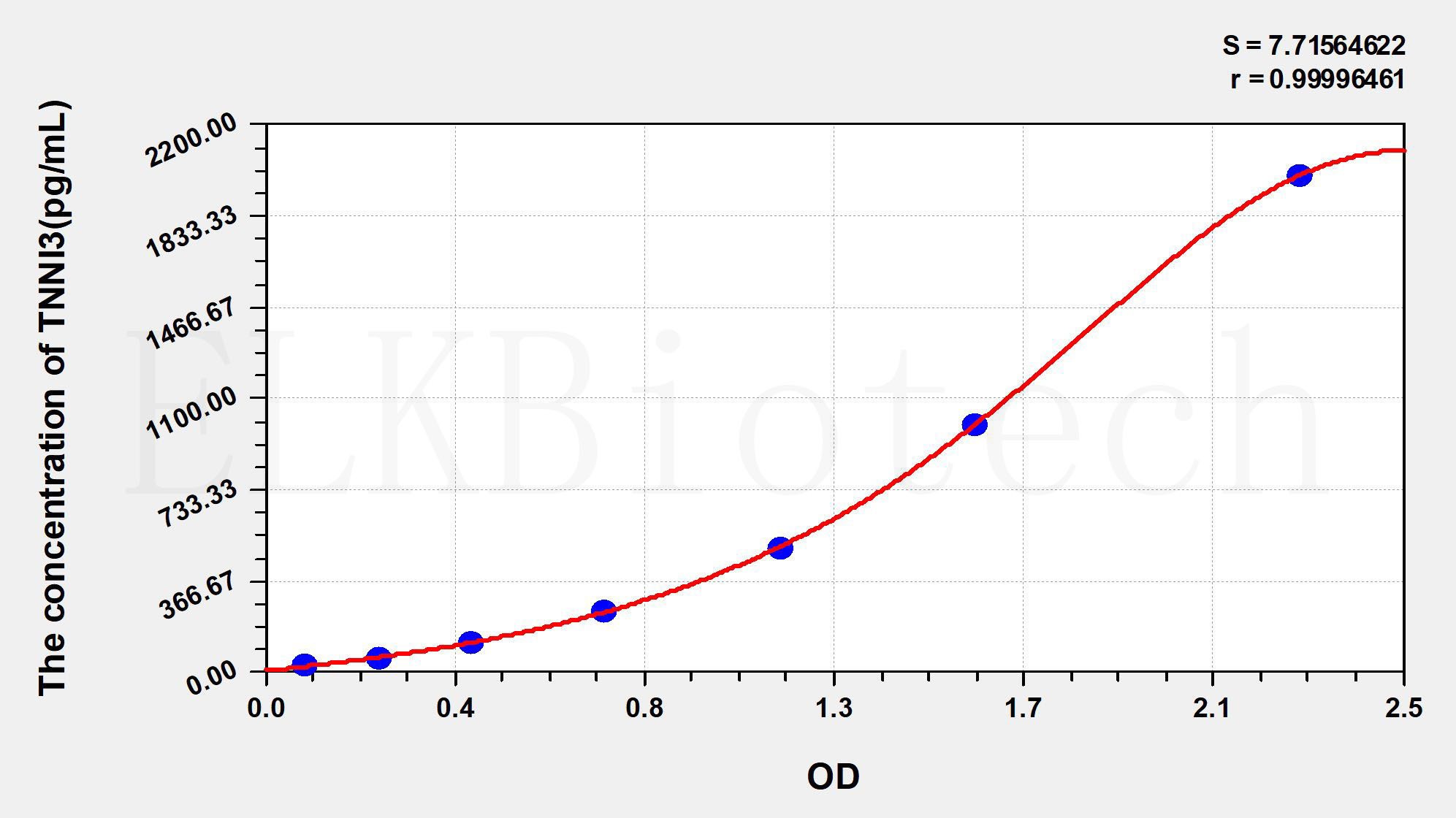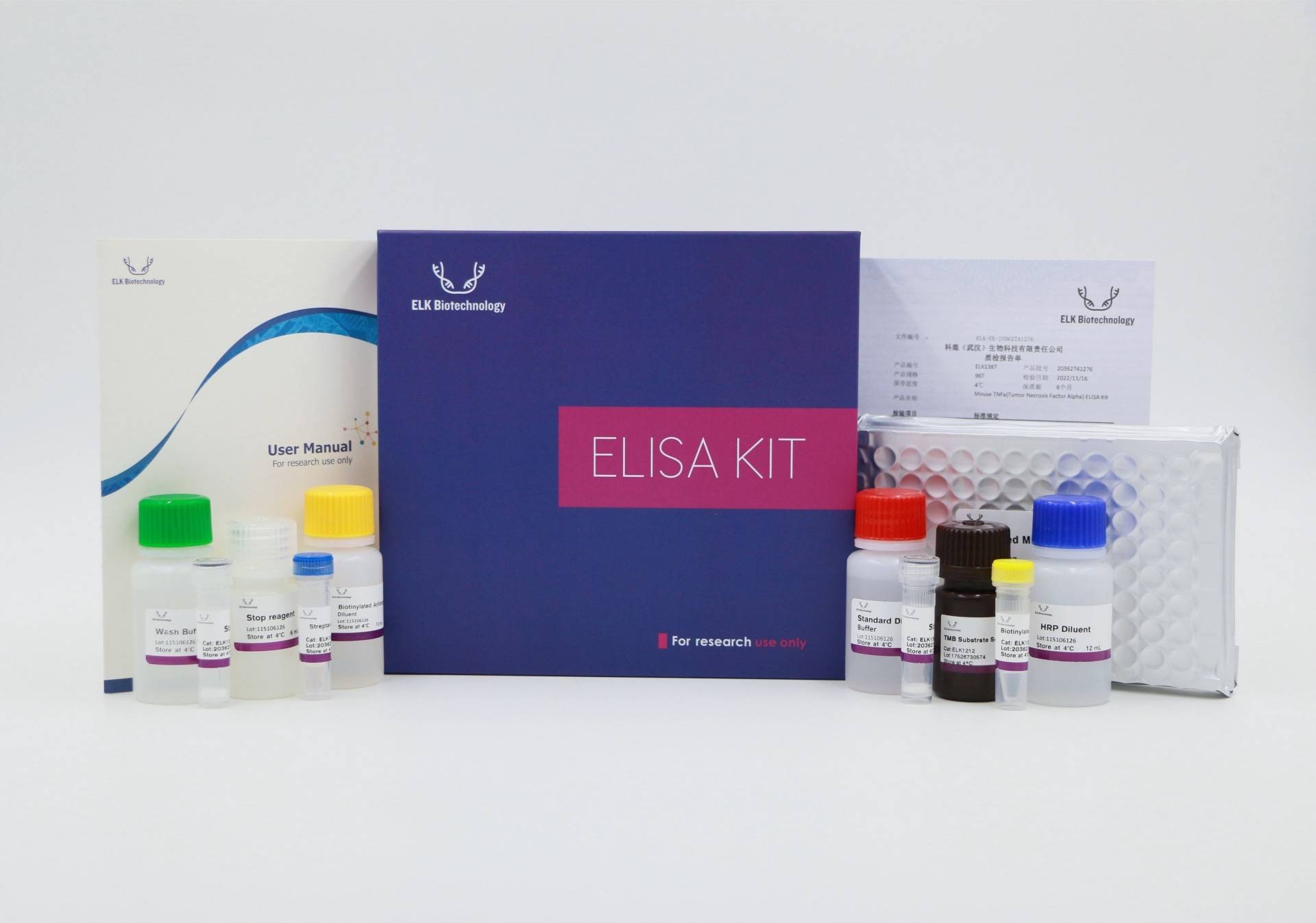

產(chǎn)品中心


小鼠心肌肌鈣蛋白I(TNNI3)酶聯(lián)免疫吸附檢測(cè)試劑盒
ELK1553| 48T | ¥1960.00 |
| 96T | ¥2800.00 |
Overview 文獻(xiàn)
標(biāo)準(zhǔn)曲線
| Concentration (pg/mL) | OD | Corrected OD |
|---|---|---|
| 2000.00 | 2.379 | 2.294 |
| 1000.00 | 1.657 | 1.572 |
| 500.00 | 1.226 | 1.141 |
| 250.00 | 0.834 | 0.749 |
| 125.00 | 0.541 | 0.456 |
| 62.50 | 0.336 | 0.251 |
| 31.25 | 0.175 | 0.090 |
| 0.00 | 0.085 | 0.000 |

精密度
Intra-assay Precision (Precision within an assay):CV%<8%
Three samples of known concentration were tested twenty times on one plate to assess intra-assay precision.
Inter-assay Precision (Precision between assays):CV%<10%
Three samples of known concentration were tested in forty separate assays to assess inter-assay precision.
回收率
Matrices listed below were spiked with certain level of recombinant TNNI3 and the recovery rates were calculated by comparing the measured value to the expected amount of TNNI3 in samples.
| Matrix | Recovery range | Average |
|---|---|---|
| serum(n=5) | 97-105% | 101% |
| EDTA plasma(n=5) | 83-99% | 95% |
| Heparin plasma(n=5) | 85-97% | 91% |
線性
The linearity of the kit was assayed by testing samples spiked with appropriate concentration of TNNI3 and their serial dilutions. The results were demonstrated by the percentage of calculated concentration to the expected.
| Matrix | 1:2 | 1:4 | 1:8 | 1:16 |
|---|---|---|---|---|
| serum(n=5) | 88-104% | 84-98% | 95-105% | 88-102% |
| EDTA plasma(n=5) | 88-95% | 98-107% | 90-99% | 88-97% |
| Heparin plasma(n=5) | 92-106% | 93-105% | 85-99% | 90-99% |
關(guān)閉
在線咨詢(xún)
Online consultation
-
在線咨詢(xún)
-
技術(shù)支持

關(guān)注微信公眾號(hào)


 下載說(shuō)明 ①
下載說(shuō)明 ①



